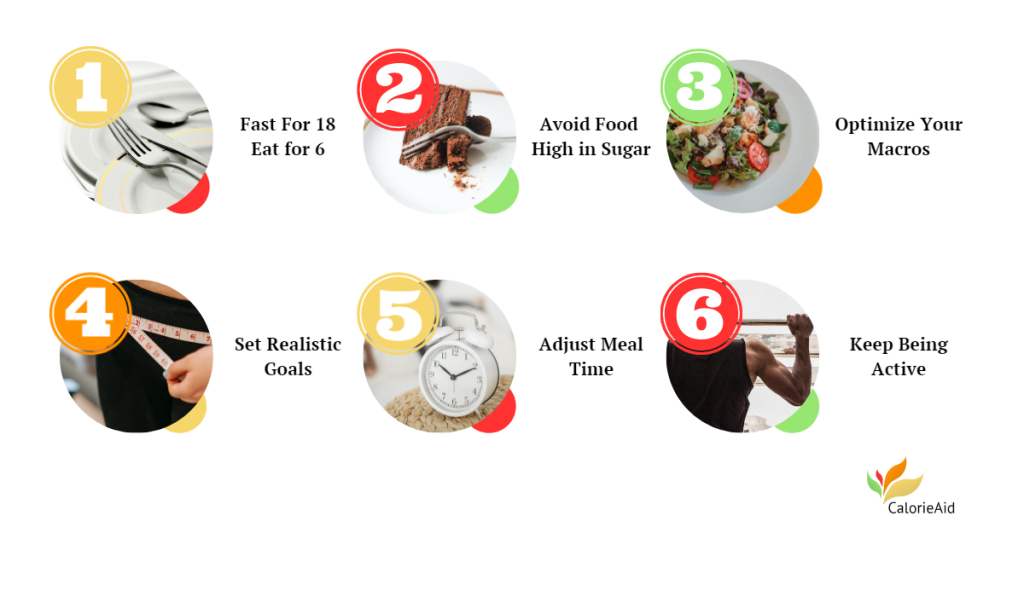Of all the things you can do to lose weight, fasting is the simplest. You just stop eating for a period of time and that’s it, you get its health benefits. It doesn’t involve buying anything, crazy diet restrictions, rigorous exercises, or doing an insane amount of research. As a medical doctor who studied nutrition for the last 5-6 years and applied most of the science to himself, I can help you understand how to fast better. In this article, We will discuss 18 6 intermittent fasting, how to do it, what it does for your body and its benefits. Let’s begin.
Table of Contents
18 6 Intermittent Fasting Benefits
Increases your willpower
Whether fasting suppresses your appetite or makes you feel more hungry, it sure will train you to eat less. Also, it will train you not to eat when you feel stressed or emotional. When you’re actively fasting, you won’t go near food when you have negative emotions, and you will find alternative ways to cope. When you fast for a long time and finally stop, you will keep away from food unconsciously. This is due to part of the brain forming habits that stick with us unless we forcefully quit them.
Weight Loss
What’s fascinating about 18 6 intermittent fasting is calorie restriction without counting calories. When you fast for 16 hours, your stomach shrinks so you won’t be able to eat much. All in all, you’re going to reduce your caloric intake without noticing. Fasting also lowers your insulin which is responsible for storing fat in your body, so your hormones shift to fat-burning mode after it burns your glycogen stores. A study also suggests that fasting is more effective at eliminating visceral fat, which is proven to cause more health risks than subcutaneous fat that we can see in the mirror and try to get rid of.
Lower blood glucose levels
If you do 18 6 intermittent fasting for a period of time, your blood glucose level will decrease, and your insulin sensitivity will increase. This means that insulin will do a more effective job of controlling your blood glucose levels.
Lower Blood lipid Levels
Similar to what happens with your blood sugar level, your blood lipid levels will be lower as well. When you’re fasting, your body is constantly looking for energy sources. The fat and sugar in your blood can be used to supply the body with such energy. That’s your body begins to use any nutrient in the blood to function.
Lower your blood pressure
18 6 Intermittent fasting can improve your blood pressure. As a combined result of losing weight (and thus lowering the peripheral resistance to blood flow), and lowering your blood lipids. So if you have a little rise in your blood pressure that does not require medication, fasting is a valid option for you.
Activate Autophagy
Autophagy is a way that your cells repair themselves and remove damaged components. Fasting activates this process, and allows your body to heal itself naturally.
18 6 Intermittent Fasting Shortcomings
Quality Of Food
Although 18 6 intermittent fasting is a good way to lose weight without counting calories, this also can be a hindrance. If you don’t pay attention to your caloric intake and you consume ultra-processed foods when you break the fast can impair your weight loss. The other problem is, because you’ve been fasting for 18 hours, you might be craving sugar. The worst thing you can do is to go for a sugary drink or a soda. In this situation, fruit might be your best bet. Fasting gets better and better with practice. Your first days might be your hardest and as you keep on doing it it gets easier. Make sure that your food is healthy and well-suited to meet your energy needs, you can know more about healthy and unhealthy foods from our article here.
It’s all about the calories
As I have just said, fasting doesn’t pay attention to your food quality as a whole. To keep emphasizing that concept, some studies suggest that the effects of fasting are due to calories or carb restriction, which renders fasting itself unnecessary. The same results can be achieved by going on a calorie or carb restrictive diet. Moreover, you can’t just fast and eat what you want afterward. You have to pay attention to what you put in your body, otherwise, you won’t achieve the desired outcome.
Lower Physical Activity Level
Because you are not eating for a while, you might be too tired to move around. This might result in decreasing your physical activity, which in turn can result in losing less fat or losing lean mass. The solution to this one is simple, move more, try some light exercises, or even go for a gym session if you can handle it. When I fast, I find moving around makes me forget my hunger and gives me energy. This might be to the fact that we are burning the stored energy when we increase our activity level. Another thing that is important here, is to get enough protein in your diet. This can dramatically decrease the odds of you losing lean mass.
It is worth mentioning that the effects of fasting on humans are still up for debate, and many studies are still being conducted to clarify the effects of fasting, how it’s best done, and what to avoid when we go on a fast.
Timing the 18 6 intermittent fasting
When you should eat
So you have decided to do 18 6 intermittent fasting, and you have one last decision to make. What is the best time for intermittent fasting? Well, to answer that question, I want you to consider two things, compliance and efficiency. A Study suggest that if you have your meals early in the day you’ll lose more fat, and if you have them later on then it will probably be more convenient for you. This might be due to the fact that you’re less busy after your day is done, so you’ll have more time to eat and also won’t worry about feeling sluggish afterward. Eating early on might cause you to lose more weight due to the thermogenic effect of food, which explains how our bodies respond to food differently at different times of the day.
Should you do 16 8 or 18 6 intermittent fasting?
Another aspect of the timing is about how long you should fast. Should you fast for 18 hours or 16 hours? The answer is there’s not much difference. First of all, if your physical activity is intense you should fast less. Secondly, it is about the weather. Your body needs more calories in cold temperatures than in hot ones. The reason for that is your body uses calories to produce heat, and if the temperature is cold it will use more of it. Remember that our bodies and habits are different, so if you’re fasting for the first time, you’ll find out in time what’s best for you.
How to do 18 6 intermittent fasting
If you read all of what I have written in this article so far, you might have formed a general idea of how you should execute 18 6 intermittent fasting. For the sake of making it more clear, here are the points you should keep in mind:
- Obviously, you fast for 18 hours and eat for 6. During the fast, you can have water, black unsweetened coffee, unsweetened tea, or anything that has no calories.
- When you break the fast, avoid foods that are high in sugar. You can have fruits to give you the sugars needed to get your brain working but no more than 100-200 kcals.
- Follow a proper macronutrient ratio with an adequate amount of fiber in the diet, eat whole fresh foods, and avoid ultra-processed food, even if their nutritional label seems compelling.
- Keep being active in the fasting period. Do what you can whether it going to the gym to do resistance training, or doing a light physical activity such as walking. This will prevent lean mass loss and enhance fat loss.
- Find out what timing works best for you. Whether to eat early in the day and fast at night or vice versa, consider your work and sleeping patterns, your free time, and more importantly, convenience.
- Set realistic goals. If you’re fasting and eating healthy, expect to lose 4-8 kg of fat every month. A little more than that can potentially damage your health.

Conclusion
To sum things up, fasting can be a great way not just to lose fat, but to boost your overall health, exercise self-control, and quit bad eating habits. However, you should be aware of your overall calories and the quality of your food, avoid foods that are high in white refined sugar, and do some physical activity to avoid losing lean mass. In essence, fasting is really simple and you shouldn’t overthink it. Which of the tips in this article you found useful? Let me know in the comments and don’t forget to share this article with someone who wants to just get started on their fasting journey.


